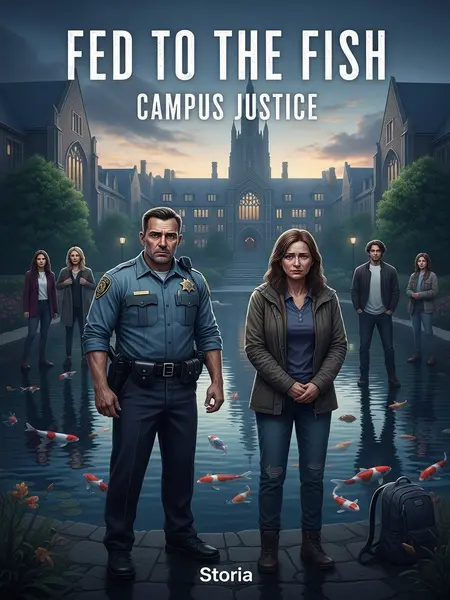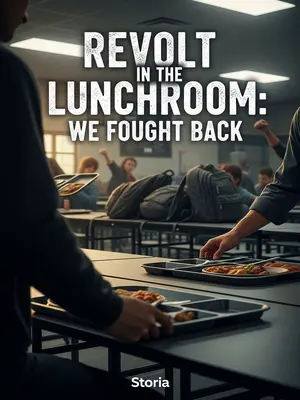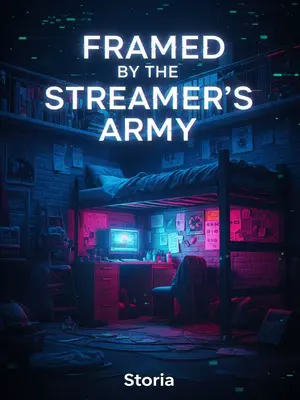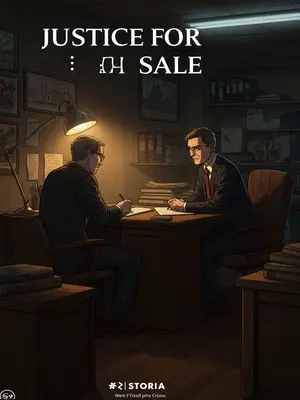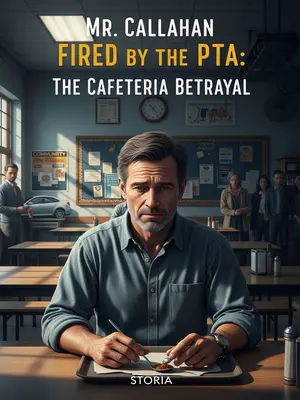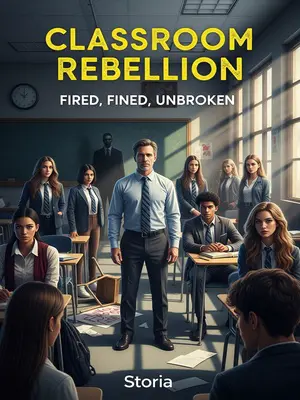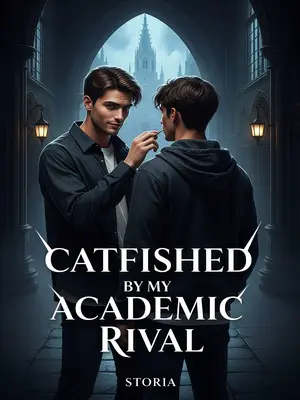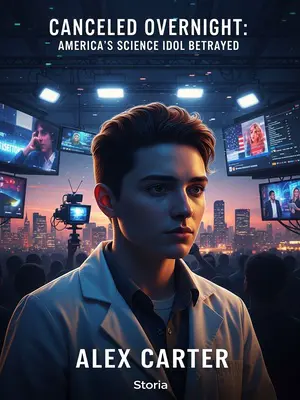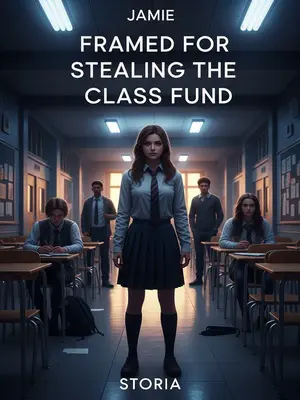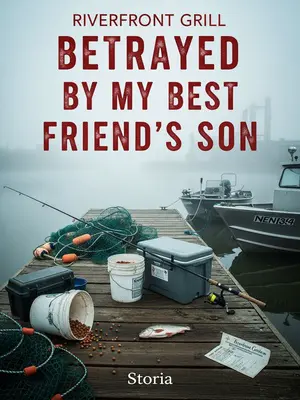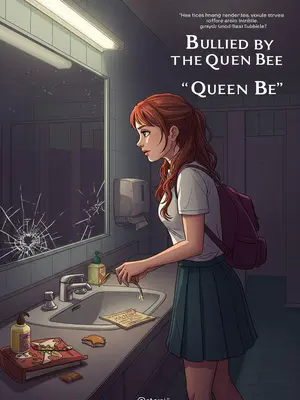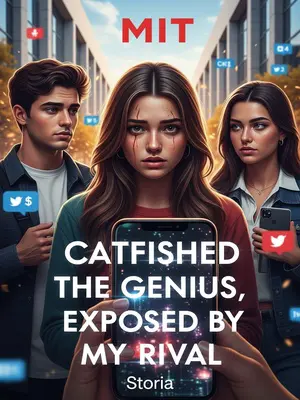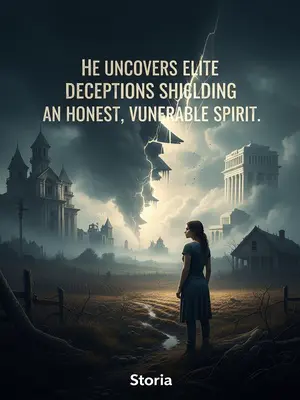Chapter 1: The Koi Pond Secret
The college had a big koi pond—a centerpiece just off the quad. Every year, during Thanksgiving break, it turned into a tourist magnet. Families with little kids would line up along the wooden railings, tossing in handfuls of bread, crackers, and whatever snacks they had on hand. This year, though, someone went overboard. By the time classes started up again, several koi were found floating belly-up—their bright bodies drifting like fallen leaves. Dead from overeating, or so everyone thought.
The air was crisp, leaves skittering across the walkways, when I got to work. I started working, expecting to find a mess of soggy bread or maybe some pretzel bits as I cut open one of the koi. But when I split it open, something made my stomach clench. The contents weren’t bread and crackers—they were slabs of raw, pink meat. Human meat. Fresh, unmistakably so. No way. No way.
I tried to piece it together in my head. I cleaned the rest of the fish, my hands trembling. It all started when the dean cornered me outside the admin building. He handed me a net and a pair of gloves, told me to scoop out the dead koi and dispose of them, said it was a health hazard. I figured it was a waste to just toss them, so I brought the fish back to my dorm kitchen, planning to make soup like my mom used to.
But as I gutted each fish—my hands trembling—I found every single koi’s stomach crammed with the same thing: raw, undigested human flesh. The smell hit me again, sharp and metallic. I had to fight the urge to gag.
I paused, staring at the flesh, my heart pounding. The shock was like a punch to the chest. The smell hit me again, sharp and metallic.
My mind raced. I mean, maybe someone had drowned in the pond—some poor student drunk after a party, or a tourist who slipped. Maybe an accident nobody had noticed. I didn’t wait; I called the dean right away, my voice shaking as I explained what I’d found.
The dean’s face went pale as chalk. He looked like he might throw up. He started barking orders, organizing a headcount of every student and staff member on campus. That night, he even sent a dive team into the pond, their flashlights slicing through the dark water, searching for a body. But they found nothing. No one was missing. Not a soul. Which made no sense.
It didn’t make sense. Even if the koi had eaten everything, there should’ve been bones left behind, right? You can’t just erase a person like that. None of it added up, and the pit in my stomach only grew.
A human life isn’t something you can just sweep under the rug. I felt that in my bones. The dean called the police, his hands shaking as he dialed. The officers showed up and started poking around. After a few hours, they landed on a grim theory. Murder.
The killer had chopped up a body and scattered the pieces in the pond, feeding the fish. If I hadn’t stumbled across it while cleaning the koi, it might’ve gone unnoticed forever. Lucky break. Or maybe not. It was almost the perfect crime—almost.
But to chop up a person like that, into so many tiny, unrecognizable pieces? That took a special kind of strength—and a whole lot of hate. I couldn’t stop picturing the kind of person who could do that. The thought made my skin crawl.
The body was so mangled, there was no way to ID the victim. And since no one was reported missing, the cops were stuck. How do you solve a case with no victim? Their year-end bonuses were riding on solving the case, and they looked ready to punch a wall.
That’s when it hit me: “We could run DNA sequencing on the remains. If the victim has a rare gene, we might be able to narrow it down. The bio lab here has the equipment.”
The cops all turned and stared at me. Their eyes flicked to my campus security uniform like I’d just sprouted a second head. I felt my cheeks flush. The dean rolled his eyes, like I was making his day harder. “He used to study here,” he said, almost apologetic. “Majored in bioengineering.”
One of the officers, Detective Clay, let out a little snort. “So you’re a security guard now? Leave the real work to us, kid.” His tone was half-mocking, half-dismissive. Like he’d watched too much TV.
A few days later, though, Detective Clay came back around. He looked like he’d swallowed a lemon. He asked about the DNA sequencing. Turned out, the forensics team had suggested the same thing. It was a long shot, but if they could ID the victim, maybe they’d have a chance at cracking the case.
I took him down to the lab, the two of us side by side under the harsh fluorescent lights. I hated that lab lighting. Made everyone look sick. After hours of running tests and waiting for results, we finally got a hit. The victim was a twenty-two-year-old man.
There was another wrinkle: the body had been frozen, making it tough to pin down the time of death. But based on how fresh the remains were, the murder had happened within the last ten days. The lab also found the victim had a rare genetic trait—albinism. That was the break we needed. I felt a jolt in my chest.
As soon as I heard that, a memory clicked into place. There was a guy in my graduating class—Lucas Frost. He had albinism. He’d just graduated in July, and my heart started pounding. The age fit. I told Detective Clay, who wasted no time calling Lucas’s parents.
Lucas’s parents answered, their voices cold and clipped. They claimed their son had already left for grad school in Canada. They barely said a word before hanging up, like they couldn’t get off the phone fast enough. Definitely off.
Detective Clay looked frustrated, but something didn’t add up. Canadian universities usually start in the spring—why would Lucas leave so early? Was he running from something, or someone? Something was weird here. I couldn’t shake the feeling.
So Detective Clay kept digging. He found out Lucas had been involved in a homicide case not long before. That changed everything.
I wasn’t close to Lucas, but I’d heard the rumors swirling around campus. He was the ultimate trust fund kid—his family loaded, his connections deep. Lucas never took exams, but somehow his GPA was always sky-high. It was like he lived in a different world from the rest of us.
With nothing to keep him busy, Lucas set himself a twisted little goal: before graduation, he wanted to hook up with a thousand women. And every time he got closer, he’d just raise the number—an endless, impossible chase. It sounded insane, but with his charm and looks, girls lined up for him.
But even Lucas had his limits. Take Mariah Lane, for example. She turned him down again and again, never giving him the time of day. He couldn’t stand it.
She once joked, “Falling in love is like using the restroom, and picking a boyfriend is like picking a toilet. If a couple people have used it, fine. But if hundreds have, I’ll pass.” The whole group cracked up, and I remember grinning too. Lucas didn’t see the humor. He just glared.
Mariah came from a single-parent family. Her mom, Linda, ran a little diner just off campus. They didn’t have much, but I always liked Mariah—she was sharp, funny, and had this spark in her eyes that made you feel lighter just by being around her. I can still remember her laugh echoing across the quad.
For Lucas, Mariah’s rejections were like waving a red flag in front of a bull. He tried everything: swaggering around like some hotshot CEO. When that didn’t work, he played the sad puppy. Then he tried acting the tragic romantic. Nothing worked—Mariah never budged.
When his charm failed, Lucas turned ugly. He started spreading rumors about Mariah, saying the girl everyone thought was so sweet was actually wild, that she was “worth a hundred bucks a night.” He got other girls to bully her, whispering behind her back, making her life miserable. I once overheard them cornering her in the bathroom, calling her names. Mariah’s stubbornness only made her more of a target, and they were all too happy to pile on.
Lucas even took things to her family’s diner, sneaking cockroaches into the food and then calling the health inspector. But Mariah never cracked. I remember the way her jaw clenched, her eyes cold as she wiped down the counter. “I only need one person’s love in this world, and that’s my mom.”
Linda Lane was tough as nails. She wasn’t highly educated, but she was honest and always had Mariah’s back. She’d come home from the diner, hands raw and red from hours of scrubbing, just to keep a roof over their heads.
Then, out of nowhere, Mariah was gone. One night, she killed herself. The news hit campus like a punch to the gut. She hanged herself in an abandoned building near the edge of campus—no cameras, no witnesses, nobody knew why she’d gone there. The silence afterward was suffocating.
Rumors flew. Some said she’d been assaulted by a homeless guy and couldn’t live with the shame. Others whispered that Lucas had finally gotten what he wanted, used her, dumped her, and she couldn’t take it. The stories twisted tighter every day.
At first, Lucas was detained as a suspect. His DNA was found, and there were marks on Mariah’s neck. But Lucas denied everything. He said he and Mariah were dating, that sex was normal, and the marks were from a fight.
There was no hard evidence, and the college circled the wagons for Lucas. They called him “an outstanding student—a future leader.” “Lucas is so caring; he feeds all the stray cats on campus.” A bad joke.
The police closed the case and let Lucas walk. I still remember the day he strolled out of holding, grinning like he owned the place, while Linda Lane knelt at the campus gate, begging anyone who would listen: “My daughter would never date that monster, please testify! I have nothing left!” The desperation in her voice still rings in my ears.
